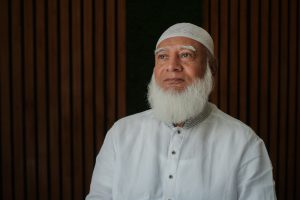Six months have passed since the Sheikh Hasina government was ousted from power in a student-led mass uprising. Since then, the Awami League (AL), the party she leads, has remained absent from major political events. Many of its leaders, including Hasina, have fled the country.
Over the past six months, Bangladesh’s political dynamics have shifted significantly. The Bangladesh Nationalist Party (BNP) and the Jamaat-e-Islami (JI) have emerged the dominant political forces.
Founded in 1978 by General Ziaur Rahman, who ruled the country from 1977 till his assassination in 1981, the BNP led governments in 1991-1996 and 2001-2006. On the other hand, the JI has never ruled independently. It has historically been a junior partner in BNP-led governments. In the 1991 parliamentary elections, the JI won 18 seats, while in 2001, it secured 17 seats and held two key ministries in the BNP-led cabinet.
The BNP and JI have been allies for nearly two decades but they are no longer partners. Both parties faced severe political repression under Hasina’s rule over the past 15 years. Since the fall of Hasina’s government, many expected that the BNP and JI would form a coalition to fight the next general elections.
However, a noticeable distance has emerged between them on issues such as election timing, reforms, and the 1971 Liberation War.
The BNP is in favor of early elections. On August 7, 2024, a day before the formation of the interim government, its Secretary General Mirza Fakhrul Islam Alamgir said that the party wanted “the national election to be held within three months.” This statement sparked widespread criticism, prompting the BNP to clarify that they were willing to allow a reasonable timeframe for the interim government to ensure a fair election and implement necessary reforms. However, the party now insists that the election must take place by the end of 2025. Given the BNP’s significantly large voter base, it is a strong contender in the electoral field and hopes to gain from its already existing advantages. Early elections will benefit the BNP as other parties are less organized.
The JI, on the other hand, has maintained its stance that elections should follow reforms. They argue that without structural changes, the country risks falling back into authoritarian rule.
The two parties differ with regard to constitutional reforms too. While the JI seeks radical changes to the Constitution, the BNP prefers minimum amendments without repealing it entirely. Like the student movement, the leading force of the anti-Hasina uprising, the JI opposes allowing the AL’s return to politics. The BNP believes the decision should be left to the people but hasn’t clarified how. They differ over the removal of President Md. Shahabuddin — the JI supports his removal, while the BNP does not. Additionally, the BNP rejects the interim government’s proposal to lower the voting age from 18 to 17 years, viewing this as a tactic to delay elections. In contrast, the JI backs the proposal, arguing it encourages youth participation.
The war of words between the BNP and the JI has intensified of late.
On December 29, the BNP’s Senior Joint Secretary General Ruhul Kabir Rizvi accused JI members of behaving like the S Alam Group, which allegedly looted banks and laundered money under Hasina’s rule. He accused the JI of using Islam for political gain. He questioned their role in 1971 and alleged that “JI now seeks to forgive Hasina to strengthen ties with India.”
The JI hit back immediately. Assistant Secretary General Rafiqul Islam Khan described Rizvi’s remarks as misleading, baseless, and politically motivated. The JI stands against Indian hegemony and fascism, a position widely accepted by the nation, he asserted.
As for the 1971 Liberation War, the BNP officially recognizes Bangladesh’s liberation and presents itself as a nationalist force. In contrast, the JI has long been accused of collaborating with the Pakistani military during the war, and several of its senior leaders were executed for war crimes under Hasina’s government. While the JI dismisses these trials as politically motivated, the BNP has largely remained silent, seeking to distance itself from the controversy. This divide has now deepened, complicating any potential alliance.
In an interview with The Diplomat in September last year, JI chief Shafiqur Rahman stated, “We fully believe in the spirit of the Liberation War and remain uncompromising in protecting the independence and sovereignty of the country.”
The BNP-JI rift has implications for Bangladesh. It could undermine national unity and destabilize the country’s political landscape. It could also open space for the AL to reenter politics.
Samina Lutfa, political commentator and associate professor of sociology at the University of Dhaka, told The Diplomat that political realignments are to be expected in the lead-up to elections. “Political calculations change ahead of elections. Sometimes, we see strong coalitions emerge, and at other times, divisions become apparent,” she said. “The BNP is focused on leveraging its large vote bank, while JI is strengthening its base, which is a natural part of electoral politics.”
To increase its support base ahead of elections, the JI is making efforts to regain its influence, especially in rural areas and among conservative communities through the party’s main goal, which is to promote Islamic values and integrate Islamic law into the country’s political system, and through its social and charitable initiatives.
It is also actively seeking alliances with other Islamist groups, even those like the Islami Andolan Bangladesh (IAB), with whom it has had a difficult relationship in the past. Despite their long-standing ideological differences, Jamaat chief Shafiqur Rahman met the IAB’s Syed Muhammad Rezaul Karim in Barisal on January 21. When journalists asked the two leaders about a potential alliance between their parties, they requested people to pray for unity. JI spokesperson Matiur Rahman Akand recently told BBC Bangla that discussions with various Islamic parties have been ongoing since August 2024. It is evident that the party’s strategic intent is to form a broader coalition and enhance its political standing ahead of the national election.

































